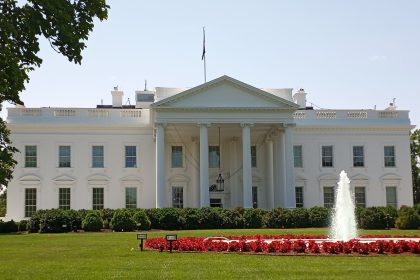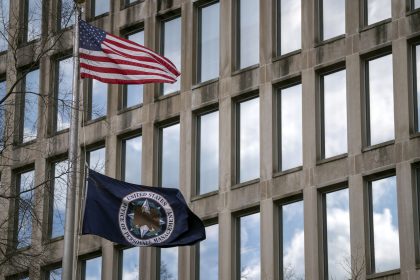Discrimination Lurks in University Hiring Platforms

WASHINGTON — The Department of Justice is shedding light on the growing trend of discrimination toward non–U.S. citizens on university job recruitment platforms after landing a score of settlements.
DOJ signed 16 settlement agreements requiring private employers to pay a total of $832,944 in civil penalties. The relevant companies were found to have posted job openings excluding non–U.S. citizens on an online recruitment platform operated by the Georgia Institute of Technology, the department announced last week. Several of the employers posted discriminatory advertisements on other universities’ platforms, and one posted as many as 74 on Georgia Tech’s platform alone.
“Unlawful hiring discrimination based on citizenship or immigration status is a widespread problem across higher education in the United States, putting many jobs out of reach of qualified college students and recent graduates,” Assistant Attorney General Kristen Clarke of the Justice Department’s Civil Rights Division said in a written statement accompanying the settlement agreements.
While contemporary customs and practices are usually thought to preclude overt hostility to a nationality group, Palmer Morrel-Samuels, research psychologist and lecturer at the University of Michigan, told The Well News that it’s still difficult to ascertain how widespread actual discrimination is.
Although unfair employment practices against noncitizens are explicitly illegal under the Immigration and Nationality Act, one of the sections of the law “contains a loophole that’s large enough for a freight train,” he said. Specifically, exceptions are provided for employers to prefer “equally qualified citizens,” meaning companies actually can pass over noncitizens in job postings if they find an equally qualified permanent resident for the role.
“So in other words, if somebody felt that they were discriminated against because they’re [an Irish citizen], okay — all the employer had to do was just to show that there was an equally qualified U.S. citizen that they preferred,” Morrel-Samuels said. “The loophole is enormous.”
Consequently, he said it can be hard to determine the strength of the greater “undercurrent of xenophobia” embedded in society just based on these cases in a vacuum. Twenty-one other … hiring discrimination cases have sprouted up in the last seven years nationwide and were either settled or are ongoing — some of which involved major companies like CVS, Exxon, and Procter & Gamble.
More surprising, Morrel-Samuels said, was that the average payout of the 16 settlements delivered last week was only $52,000. The most common civil penalty amounted to $4,144 — which seven companies were issued. Three companies — KPMG LLP, Keyot LLC and Area-I Inc. — were forced to pay civil penalties amounting to $306,656; $256,928; and $103,600, respectively.
The law used to secure the settlements is largely misunderstood, he said, as it touches on a somewhat complex and subtle area of discrimination law. Its basic protections and rights are outlined in the equivalent provisions of Title VII of the Civil Rights Act of 1964, which prevents discrimination based on nationality.
The caveat baked into the Immigration and Nationality Act’s section on unfair immigration-related employment practices presents a challenge for plaintiffs in some discrimination cases. For instance, the U.S. District Court for the Southern District of New York ruled against a plaintiff in June who claimed to have been refused admission from the City University of New York’s Silberman School of Social Work based on their political opinion imputed by their skin color and Jewish identity.
Although the plaintiff believed that they were rejected due to religious or political discrimination, the protections of the law only apply to immigration citizenship status. As a result, District Judge Vernon Broderick in part granted the defendants’ motion to dismiss the case.
“Here, plaintiff’s claims have nothing to do with illegal aliens, or the hiring and firing of employees, and plaintiff’s citation to these statutes as a basis for her claims is therefore frivolous,” Broderick wrote in the ruling.
Caren Goldberg, associate professor of management at Bowie State University and discrimination issues consultant, said ultimately there is no way of knowing just how widespread it is for organizations to exclude people based on citizenship or immigration status. Discrimination in recruitment is generally harder to expose than discrimination in other business decisions, like promotions and compensation, because one candidate has no way of knowing how they stack up against other candidates.
Prospective employees typically have no way of knowing whether they’ve been denied an interview because of a protected status like citizenship, gender, race or religion, or because the recruiting organization chose more qualified candidates, she said.
“One distinction between citizenship [or] immigration status and other protected characteristics is that employers may need to sponsor a visa for noncitizens, which can cost thousands of dollars per employee,” Goldberg told The Well News. “Because employers often don’t understand that there are circumstances under which they would not need to sponsor a visa to hire a noncitizen, the default ‘easy solution’ is to exclude noncitizens from consideration.”
If this is happening at organizations like KPMG that boast highly trained human resource staff, Goldberg said, “it is most certainly happening” at smaller organizations with fewer resources and training. In addition to the varying amounts paid in civil penalties, the DOJ required the offending companies to take part in employment eligibility verification training, known as Form I-9.
Goldberg also maintained that Clarke’s assertion that hiring discrimination presents a “widespread problem across higher education in the United States” was perplexing because Georgia Tech wasn’t complicit in the schemes. Simply put, it isn’t the universities that are discriminating; rather, it’s the employers that recruit at universities that were found to have discriminated.
“It is inaccurate to call it ‘discrimination in higher [education],’ as a university campus is merely a recruitment source for the employers who hire their graduates,” Goldberg said. “The platform Georgia Tech used likely made it easier for the DOJ to detect a pattern, but the issue extends well beyond campus recruiting.”
Reece can be reached at [email protected] and @ReeceNations
Caren Goldberg is now a research fellow at the University of Seville.























